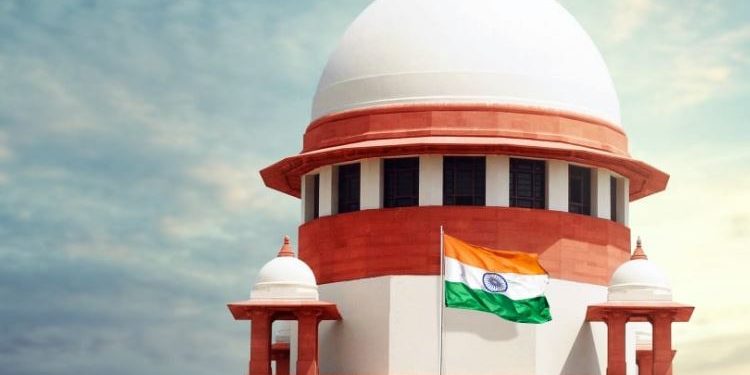New Delhi: The Supreme Court Tuesday asked the Centre as to what exercise it has undertaken to justify decisions to grant quota in promotions to the employees belonging to the Scheduled Castes (SCs) and Scheduled Tribes (STs) on counts such as they have inadequate representation in jobs and the reservation will not adversely impact the overall administrative efficiency.
A three-judge bench headed by Justice L Nageswara Rao said if a judicial challenge is made to the quota in promotions to the SCs and STs in a particular cadre of a job then the government will have to justify it on grounds such as that they are inadequately represented in a particular cadre and granting quota will not adversely impact the overall administrative efficiency.
“Please do not argue on principles. Show us the data. How do you justify reservations in promotions and what exercise have you undertaken to justify the decisions. Please take instructions and let us know that,” said the bench which also comprised justices Sanjiv Khanna and B R Gavai.
At the outset, Attorney General K K Venugopal, appearing for the Centre, referred to the apex court judgements right from the Indra Sawhney verdict of 1992, popularly known as Mandal Commission case to the Jarnail Singh verdict of 2018.
The Mandal judgement had ruled out quota in promotions.
“What is relevant is that the Indra Sawhney judgement concerned the backward classes and not the SCs and STs,” the law officer said.
“This judgement deals with the question of whether every category should be given reservation proportional to their population. It then says ‘no it should not be so given’ because then it will far exceed the 50 per cent cap,” he said.
Article 16 of the Constitution requires equality in matters of public employment and if merit alone is the criteria then the SCs and STs, who are disadvantaged socially, might not be able to compete, he said.
The law officer said that till 1975, 3.5 per cent SCs and 0.62 per cent of STs were in government employment and this is the average figure.
Now in 2008, the figure of SCs and STs in government employment has come to 17.5 and 6.8 per cent respectively which are still low and justify such quota, he said.
The court will continue the hearing on Wednesday.
Earlier, the top court, on September 14, said that it would not reopen its decision on granting reservation in promotions to the SCs and STs as it was for the states to decide how they implement it.
“We are making it very clear that we are not going to reopen Nagraj or Jarnail Singh (cases) because the idea was only to decide these cases in accordance with the law laid down by the court,” the bench had said.
The issues framed by Attorney General K K Venugopal and the ones circulated by others are enhancing the scope of cases, it said.
“We are not willing to do that. There are certain issues that are already decided in Nagraj that also we are not going to take up. We are very clear that we are not going to permit any arguments for reopening of cases or arguing that law laid down from Indira Sawhney is wrong because the very scope of these cases is to apply the law as laid down by this court,” the bench had said.
Venugopal had submitted before the apex court that nearly all these issues have been covered by judgements of the top court and he would give a background of all the cases on the issue of reservation since the Indira Sawhney case.
The Attorney General had said the problem of the Union of India is that there are three interim HC orders passed out which two say that promotions can continue to be made, while one HC has issued status quo orders on promotions.
“The Government of India has 1,400 posts (secretariat level) stagnating where no promotions could be made on a regular basis because all three orders dealt with regular promotions. The issue is whether the promotions for regular appointments can be continued to be made and whether it affects the reserved seats.
“There are another 2,500 posts stagnating for years due to status quo orders relating to regular promotions. The government wants to make those promotions on an adhoc basis without any rights,” Venugopal had said while seeking a stay on a contempt plea against the government official.
Earlier, Maharashtra and other states had said the promotions have been made in unreserved categories, but promotions have not been granted in reserved categories for SC and ST employees.
In 2018, a five-judge constitution bench had refused to refer the 2006 judgement in the M Nagraj case, in which the creamy layer concept was extended to the Scheduled Castes (SCs) and Scheduled Tribes (STs) to a larger seven-judge bench for reconsideration.
It had also paved the way for a grant of quota for promotions in the government jobs to SCs and STs and had modified the 2006 judgement to the extent that the states will not be required to “collect quantifiable data” reflecting the backwardness among these communities to justify the quota in promotions.
However, the top court, in 2018, had upheld the other conditions such as the governments will have to justify promotions in quota for SCs and STs by establishing that their representation in that particular kind of job is inadequate and this would not impact the overall administrative efficiency.
PTI






































